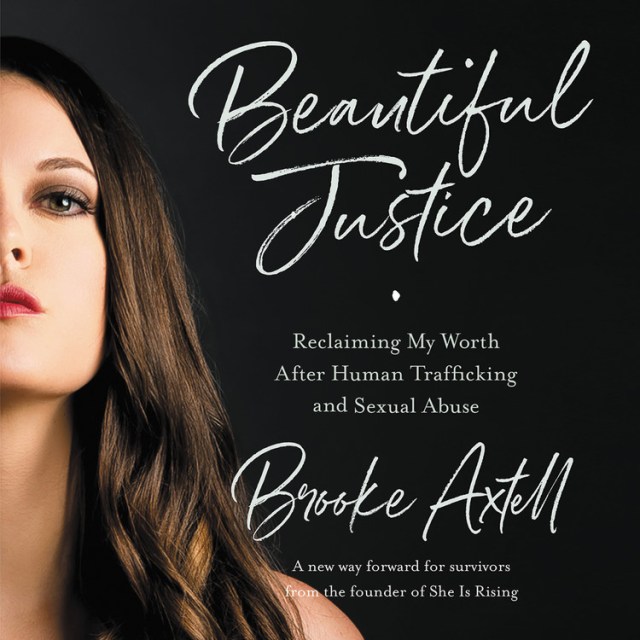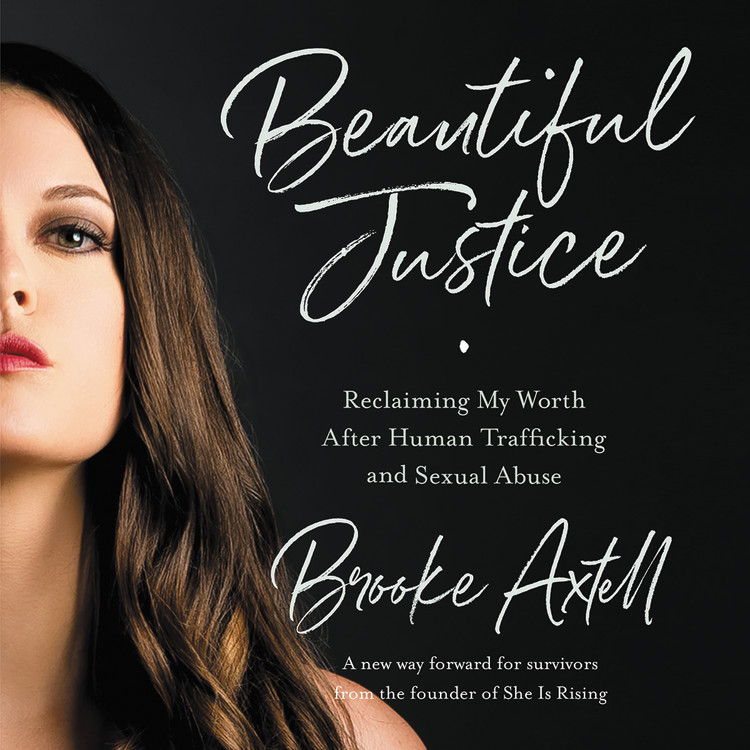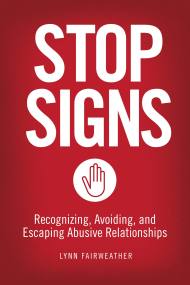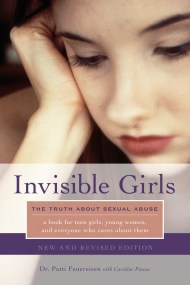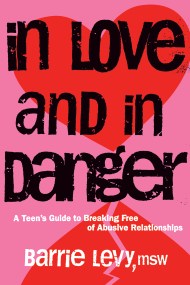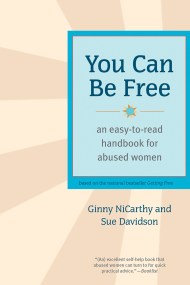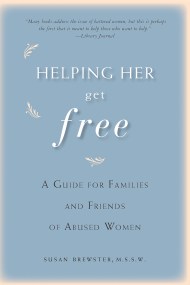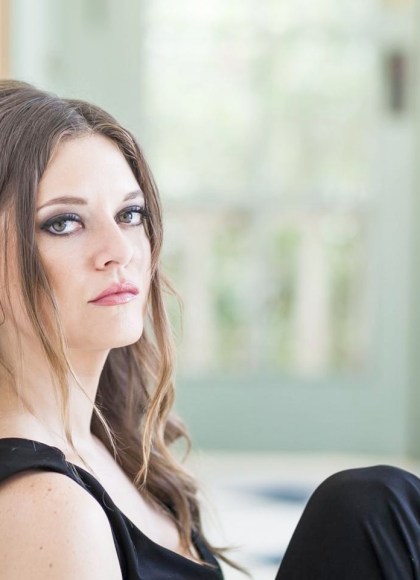By clicking “Accept,” you agree to the use of cookies and similar technologies on your device as set forth in our Cookie Policy and our Privacy Policy. Please note that certain cookies are essential for this website to function properly and do not require user consent to be deployed.
Beautiful Justice
Reclaiming My Worth After Human Trafficking and Sexual Abuse
Contributors
Read by Brooke Axtell
Formats and Prices
- On Sale
- Apr 2, 2019
- Publisher
- Hachette Audio
- ISBN-13
- 9781549150296
Format
Format:
- Audiobook Download (Unabridged)
- ebook $11.99 $15.99 CAD
- Trade Paperback $19.99 $25.99 CAD
This item is a preorder. Your payment method will be charged immediately, and the product is expected to ship on or around April 2, 2019. This date is subject to change due to shipping delays beyond our control.
Buy from Other Retailers:
A story of healing and a guide to seeking justice after sexual abuse from Brooke Axtell, one of the foremost survivor experts on sexual assault, domestic violence, and human trafficking
When Brooke Axtell was seven years old, her nanny subjected her to sex trafficking. Today, she is a champion and advocate for women around the world who have experienced sexual violence and trauma.
Beautiful Justice shares Brooke’s own gripping story, both the trauma of sex trafficking and also her pathway through healing, moving on, and reclaiming power. Along the way, she imparts warm wisdom for others who have experienced similar violence, providing lessons from her own life and from the thousands of women, advocates, and lawmakers she’s spoken with. Relying on her own experiences and a keen awareness of public policy, she provides a clear-eyed awareness of the ways that our culture and government work against women experiencing violence around the world.
Inspiring and powerfully redemptive, Brooke encourages readers to take part in a creative resistance as a path to justice.
When Brooke Axtell was seven years old, her nanny subjected her to sex trafficking. Today, she is a champion and advocate for women around the world who have experienced sexual violence and trauma.
Beautiful Justice shares Brooke’s own gripping story, both the trauma of sex trafficking and also her pathway through healing, moving on, and reclaiming power. Along the way, she imparts warm wisdom for others who have experienced similar violence, providing lessons from her own life and from the thousands of women, advocates, and lawmakers she’s spoken with. Relying on her own experiences and a keen awareness of public policy, she provides a clear-eyed awareness of the ways that our culture and government work against women experiencing violence around the world.
Inspiring and powerfully redemptive, Brooke encourages readers to take part in a creative resistance as a path to justice.
Genre:
-
"Beautiful Justice is a fierce declaration of survival, grace, and dignity. Axtell bares her soul to the world in searing prose that demands we hear the voices of survivors with respect and compassion. Her perseverance in the face of brutality reminds us of all that is noble in the human spirit."Siddharth Kara, author of Modern Slavery: A Global Perspective and Sex Trafficking: Inside the Business of Modern Slavery
-
"Beautiful Justice is a powerful, poetic call to remember that our worth as women, as survivors, can never be taken from us. Our worth is right here for us to reclaim, from within. Brooke Axtell's story of healing her trauma, returning to her body, and finding fierce love for herself, leads to the greatest triumph of all, to the light no darkness can extinguish; the voice of her own soul."Meggan Watterson, author of Reveal and The Sutras of Unspeakable Joy and coauthor of How to Love Yourself
-
"As a survivor of sexual exploitation and abuse, Brooke takes us on her journey with painstaking honesty and integrity. She takes the reader through her music and poetry and shows us how strong the spirit is. We intimately meet the girl, the woman, the survivor, the advocate, the artist, as she inspires others to their healing. Brooke is an inspiration to all sexual abuse survivors, and as she eloquently writes, 'The pain we feel is not infinite, love is.' The is a lot of love in Beautiful Justice."Dr. Patti Feuereisen, founder of Girlthrive, and author of Invisible Girls: Speaking the Truth About Sexual Abuse
-
"Brooke Axtell's genius book Beautiful Justice proves that every woman has a story that deserves to be heard, and no matter its contents, can be transformed. You will find your story in hers. You'll be reminded that we can all play a part to create a world where women are valued."Gina DeVee, creator of Divine Living
-
"In her reclamation of worth, Brooke is a beacon. A white hot burning flame of truth. The words and wisdom held within this book are fierce and much needed medicine for these times."Lisa Lister, author of Witch and Love Your Lady Landscape
-
"Axtell [is] an example of the power in speaking out."Rolling Stone, Rolling Stone
-
"Beautiful Justice lives up to its name. Brooke Axtell's beautifully written story is born of personal tragedy and triumph. Told with warmth, humor and pride, she shares lessons we can all learn from."Terry Lickona, co-producer of The Grammy Awards
-
"Beautiful Justice perfectly describes Brooke Axtell's deeply compelling book. Her poetry weaves her personal story of abuse and child sex trafficking through her own heroine's journey to healing. She reveals how she turned the pain of her trauma into passion for social justice. And she offers a handbook for sexual abuse survivors (and, frankly, all women), gently coaching us to reclaim our bodies, our voices, and our power to lead and live as we freely choose."Gloria Feldt, cofounder and president of Take the Lead and author of No Excuses: 9 Ways Women Can Change How We Think About Power
-
"Axtell plumbs the horrors of her trauma as a poet, bard, seeker, and seer and establishes herself firmly as a moral and spiritual authority-and, endearingly, as a teacher and as a friend . . . It is in fact Axtell's unflinching candor that allows the reader to grasp the full extent of trauma and the turbulence of the healing journey. Axtell assumes nothing and therefore reveals everything. If one ever doubts the importance of artists and authors to serve as moral beacons for society, let them read this exceptional book."Sanjay Rawal, award-winning documentary filmmaker and activist
-
"A powerful voice."Austin-American Statesman
-
"Brooke is a multi-talented, inspiring and impressive woman. A rising star."Debra Condren, bestselling author of Ambition Is Not a Dirty Word
-
"Brooke is a dynamic young force."Suzy Spencer, New York Times-bestselling author of Wasted
-
"In Brooke Axtell's stunning book of fierce love, fierce devotion, and fierce healing, she shares her personal journey through abuse, step by step, and integrates it into a roadmap for others. She honors the many different paths of a woman's spiritual and psychological inner terrain and affirms there are as many paths as there are women. Brooke generously reveals the way art healed her life and in turn shows us the way to do the same with our own."Deborah Kampmeier, filmmaker and director of Hounddog and Split
Newsletter Signup
By clicking ‘Sign Up,’ I acknowledge that I have read and agree to Hachette Book Group’s Privacy Policy and Terms of Use
